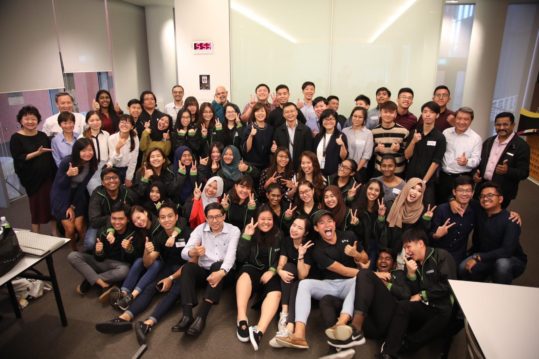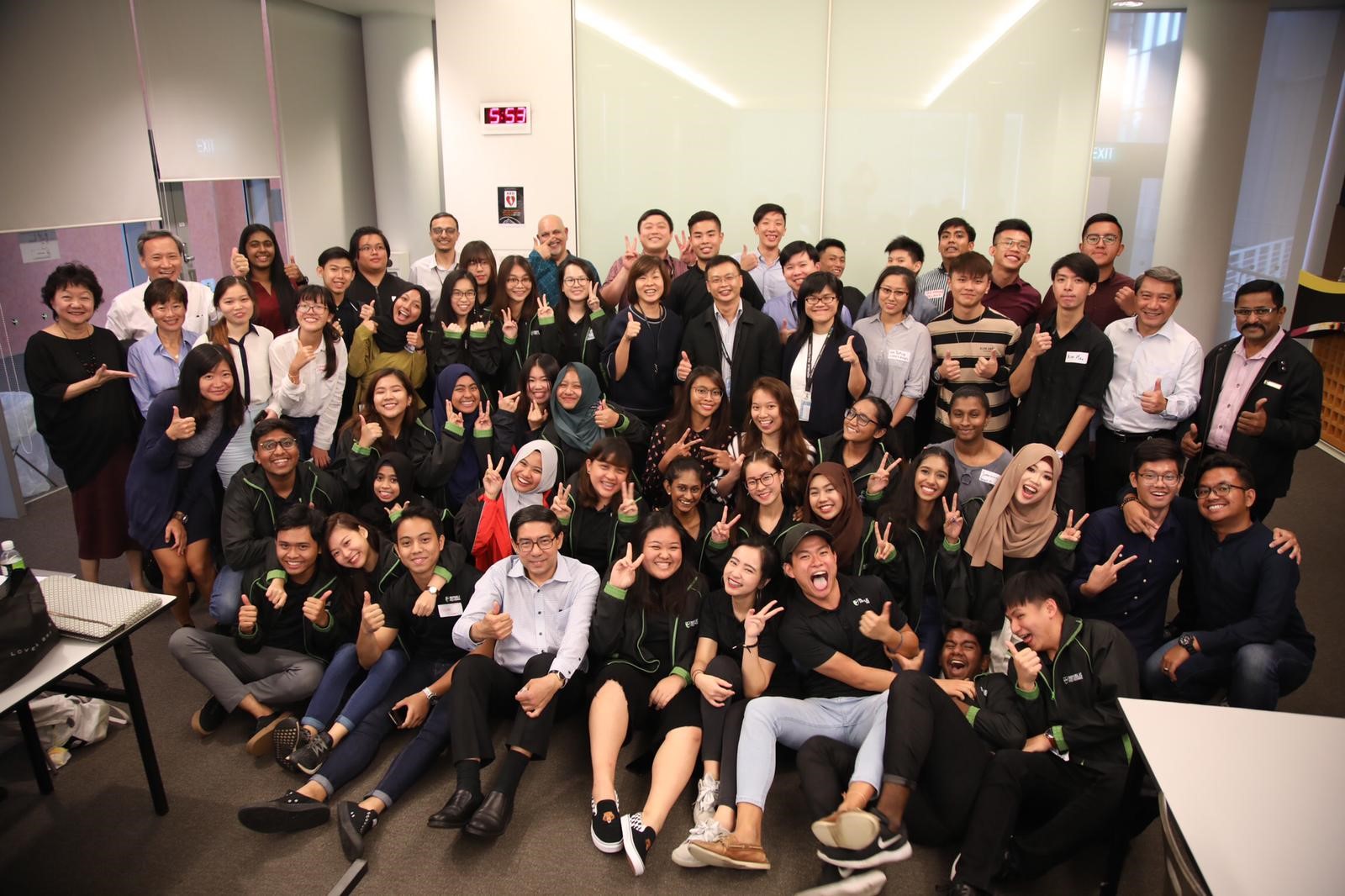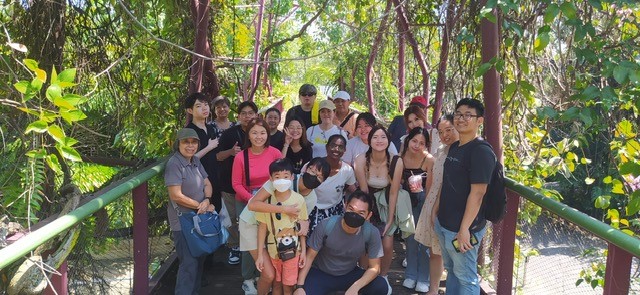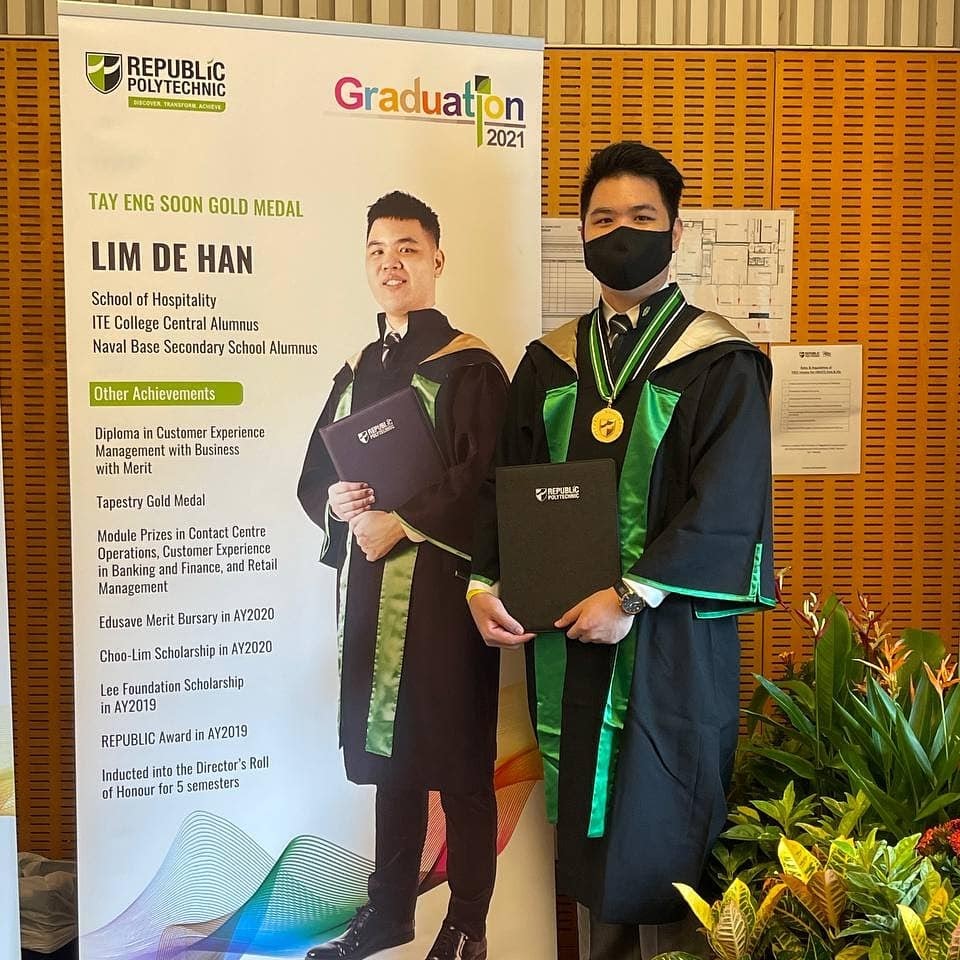
About 50 office holders from the seven academic and non-academic clubs, such as Adventure Learning Club, CREATE Club, Service-Learning Club, Sports Club and the Student Council, attended a closed-door dialogue session with RP’s Senior Management on October 16, 2018.
The annual meeting serves as an important feedback channel for the student population. The student leaders, who had spent two weeks gathering questions and concerns from their peers in RP, raised various questions to members of the senior management and sought clarifications.
One of the issues raised was if there would be improvements to the Problem-Based Learning (PBL) pedagogy used in RP.
Dr Wang Jianguo, School of Engineering’s Director, acknowledged that while PBL is advantageous, as it encourages independent thinking and confident expression of ideas, some students may not be used to the method.
Dr Michael Koh, Deputy Principal Academic Services, added that daily grades also help build the confidence of the Year 1 students so as to achieve good results. On the other hand, Dr Koh and Dr Wang also reminded the student leaders that RP employs different teaching strategies where appropriate, including interactive seminars, project-based learning, cognitive modelling and experiential-learning.
There was also a question regarding the confusion related to the grading for Mid-Semester Assessment (MSA) and End-Semester Examination (ESE) scripts. Mr Boo Chong-Han, Deputy Principal, Student Services and Organizational Development, highlighted that, similar to the GCE ‘O’ Levels, the RP exam questions are set at varying levels of difficulty – basic, moderate, advanced – and the marks distributed accordingly. This ensures fairness and equality. He further explained that grade criteria and assessment rubrics are also regularly calibrated to ensure accuracy and consistency.
With further studies potentially being on the minds of many students, a question was raised on the area of future academic pursuits and what students could do to score an interview with the universities. Mr Ashley Chua, Senior Director Industry Services and SkillsFuture, replied that the individual universities give different weightage to students’ GPA score and other factors, such as Co-Curricular Activity and Interest Group involvement. For example, NUS and NTU highly value the GPA score, while SUSS are known to also consider the prospective student’s other strengths. Mr Chua encouraged students to not only work hard in their academic pursuits, but to also hone life skills, such as leadership ability and teamwork, as these skills will stand students in good stead in the workplace.
The student leaders present were curious to seek senior management’s opinion on how student leaders could further contribute to RP. Student leaders were advised that they should be role models to others. They should speak well of the institution, and be RP’s ambassadors. As role models, student leaders should behave well, set a positive learning culture in class, pursue their passions, and encourage others to do the same.
Rounding up the dialogue, RP Principal Yeo Li Pheow reminded leaders to continue to watch out for their fellow students and to highlight those who may require assistance. He highlighted that student leaders have a big part to play in encouraging their peers to help one another, and in keeping the campus safe.






